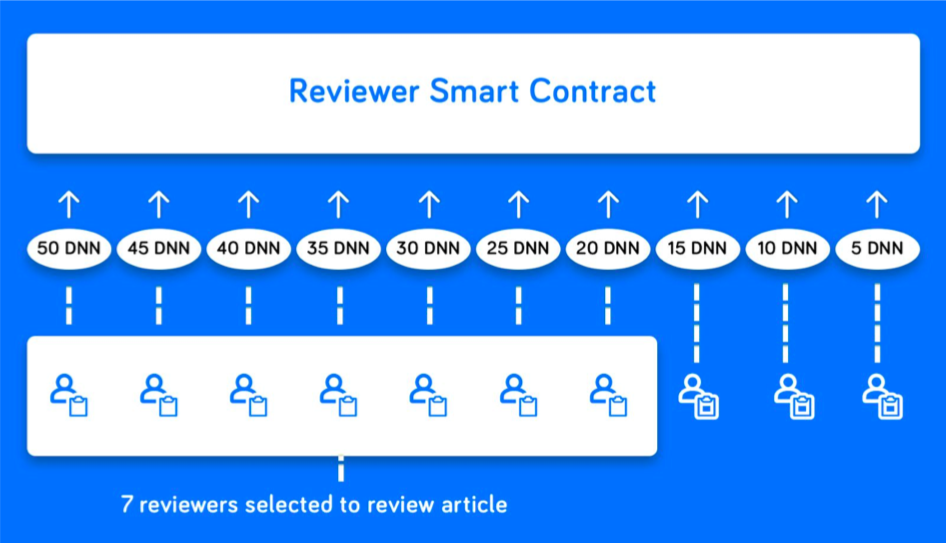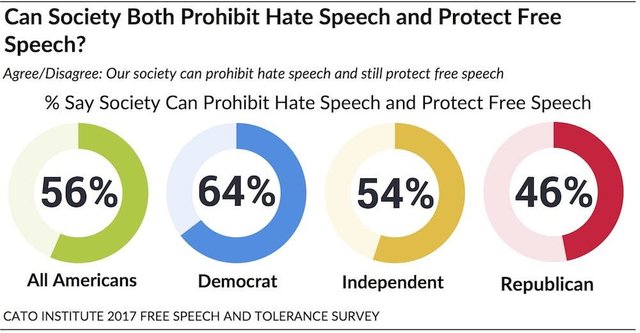DNN - The Good, The Bad And The Ugly On How To Create A Decentralized Free News Platform
Wooooohhh, alright Steemians these ideas ran real long so no intro here. Let's just get into the dirty dirty of what I see happening with DNN's project.
Censorship:
One of the core promises DNN makes is to remove the layer of censorship present in both traditional and new media by outsourcing the review and fact-checking of articles to a party of reviewers (currently a Best of 7 approval model) as well as preventing future censorship by providing the content with a place to exist (*theoretically forever...) without fear of ever being forcefully removed by any party. If DNN works I have no hesitation in saying that it is a remarkable benchmark in the pantheon of free speech achievements.
Potential obstacles or foul ups on the way there of course are many. The first for me is a fault in the theory that "more parties will naturally be more objective than one party". Meaning, that just because you have more auditors reviewing and approving things before they are published does not in itself promise a less-biased, more objective vetting process. The reasoning "More things are more objective than less things" is faulty. Here are some problematic questions to ask yourself before jumping on board with my reasoning:
- What is to prevent reviewers from bringing their personal biases into their review process?
- How is the review process guided, and what were the biases of the people who created the guidelines?
- What if a large majority of users (publishers and reviewers) on the platform are all from one particular ideology?
- How do you safeguard against just plain old human laziness, sloth and ignorance?
- Are the incentives aligned so that doing your job well is also the best way to create value for yourself in that job?
Further expanding on the second question there, just because you've created a theoretical playground where the goal is unbiased representation of content does not necessarily mean that that is how the system will play out once taken into the real world and thousand or millions unique users are acting upon it in real time. For examples of how the third question can foul up any system intended to do good you need look no further than the countless examples in the US political system where evangelical or fundamental senators, congressmen, and judges block progressive legislation for years and decades at a time. For some examples of how political views of the time when held by those with the most judicial power can go awry there is a great article on Thoughtco.com on the history of the Supreme Court (9 judges) making what are now considered to be shockingly repressive verdicts: https://www.thoughtco.com/racist-supreme-court-rulings-721615
For a more concrete example from today, suppose that 64% of your reviewers on a platform endorse the idea that Hate Speech trumps Free Speech in determining that there are just some things people shouldn't be allowed to say? You're not going to get anything resembling the real world distribution of view points in your content when the very system put in place for review has a majority of people think that they are protecting their fellow global citizens by rejecting content that has wording embedded which may be offensive to someone somewhere. Unless somehow the platform itself discourages injecting personal bias into your reviews, when you hire someone to do a job you have to fully expect them to use their heart and their brain to do it. Not one to the exclusion of the other.
Amount of Time And Access To Founding Team in Slack / Telegram
This can be read in multiple ways. For instance, I think that it is great for any project to be in touch with it's early adopters. Receiving feedback and shaping the product as bugs and improvements are detected.
- But how much time and access is too much?
- How responsive is too responsive?
We all know how alluring notifications are, and how good it can feel to respond and deal with something as soon as we see it. But every time you switch tasks, you are losing the take-down and setup time to re-insert yourself back into whatever you were doing. the DNN team has been highly responsive to my questions, which I appreciate. But it also makes me ask "Why don't they have someone managing their interactions for them?" Someone who is batching feedback together, and providing for them big questions or overall trends for the day or week. And if they aren't resisting this temptation to do everything themselves now, when will they be able to resist this as they scale? Micro-managing at this level leads to burnout, lack of focus and sub-par results. Quite simply, it is the death of scale.
Built for the Ethereum Blockchain
This one is way outside my pay-scale, but I wonder if DNN is really best built for the Ethereum blockchain or if it's just going there because that's what popular right now. DNN is not a product yet, and there are some real contenders for improvement on the ETH platform (such as DFINITY) in the near future that may make DNN a superior product if it was built with the intention to be able to function cross blockchains. Questions:
- Is DNN being built to be backwards-or-forwards compatible with other blockchains should a superior version of Ethereum emerge shortly?
- Is DNN going to Ethereum because it provides the best platform, or because it is popular?
- Is DNN a technology that thinks it's forward thinking, but being built facing backwards?
What I mean by the third question is that the novelty of Bitcoin or Ethereum was that they were built recognizing that something with the current system of global value creation is wrong, and they will build something with true new use cases and the market will follow. DNN seems to be built looking backwards and saying "Ethereum is working and has a market, and news media isn't working but has a market so how can we build on those two existing markets?"
Spending DNN inside DNN
Any regular Steemians will recognize the "circle-jerk" discussion that is going on currently about whether valuable things are really being created inside Steem.it or whether it is just a self-aggrandizing Bio-Dome for content producers using crypto specific bots in order to boost and gain visibility and profit for their posts. I haven't drawn my own conclusion here as I think I'm just a virgin to the platform to haven't been able to read or experience enough inside of Steemit yet.
If DNN plans to use their token as a method for exchange and payment within their news platform it does make me wonder wether they setting themselves up to be just an echo of the Steem economy where people spend a particular crypto inside of their platform in order to boost visibility of their own stuff? Creating this confusing world where you can't discern votes from real humans and votes by paid bots. Of course there is nothing to say that votes from paid humans are anymore unbiased than those from a bot. If your goal is truly to create a meritocracy for content then how do you safeguard against an ecosystem where a paid computer opinion is just as heavily weighted as that of any real user? Or do you want to?
Did I ask or say anything useful here? Let me know as this is my first crypto related post ever.
Check out my only other post on Steem @
- https://steemit.com/writing/@almostfitz/free-writing-cage-that-monkey-mind-and-get-creative
- https://steemit.com/data/@almostfitz/stop-wasting-time-168-hours-tracking-system
Check out my posts on my other blog @


